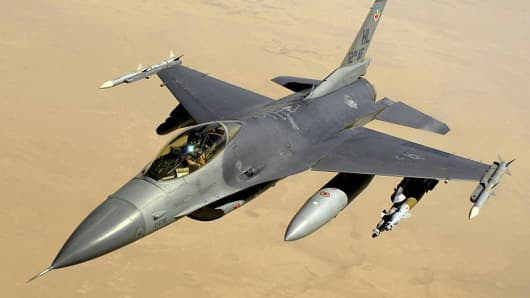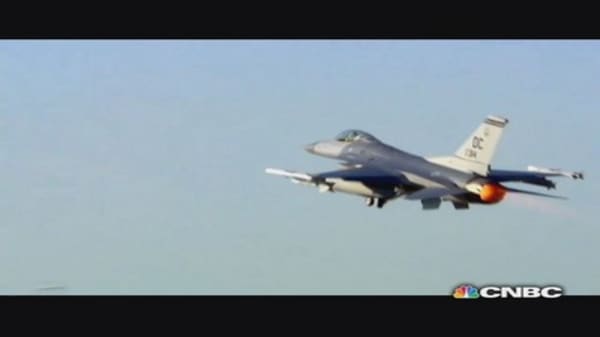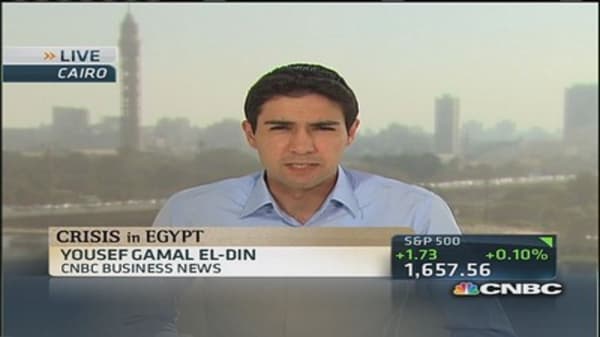The F-16 has been a huge money-maker for Lockheed, not only in the United States, but through sales to foreign allies. The small, comparatively inexpensive air-to-air fighter plane first entered service 35 years ago, and the Air Force Thunderbirds still fly them (though sequestration has grounded that program for now).
As the death toll rose in Egypt, President Barack Obama canceled joint military exercises and Defense Secretary Chuck Hagel warned Egyptian authorities they were "putting important elements of our long standing defense cooperation at risk." However, the Pentagon told CNBC in a statement that the F-16 deal is not dead: "This is a delay in delivery, not a termination. We have not canceled the program. The program is not off."
(See the slideshow: Scenes from the turmoil in Egypt)
There's confusion about how many F-16s have already been delivered in the 20-plane order. Lockheed Martin told CNBC that 14 have been delivered, but the Pentagon said that eight have been delivered, another four are being held back by the U.S. government, and one more is being tested by Lockheed.
It's also unclear how much the contract is worth, with Lockheed claiming it's worth about $776 million and the government claiming it's about twice that amount—$1.6 billion. Since U.S. contractors can't sell directly to foreign governments but must work through the Pentagon, it's also not clear who will end up with possession of the planes—and the bill—if the contract with the Egyptians is canceled.
"LMT's contract is with the U.S. government, which is on the hook to take the planes whether or not it delivers them to Egypt," said analyst Cai Von Rumohr of Cowen & Co.
(Read more: Egypt seen as the graveyard of Islamist ambitions for power)
Howard Rubel at Jefferies said it's probably correct that the U.S. is on the hook for the aircraft, though he said that even if Lockheed ends up stuck with the bill, "they typically hold substantial progress payments and advances so that the cash at risk is modest, at best."






